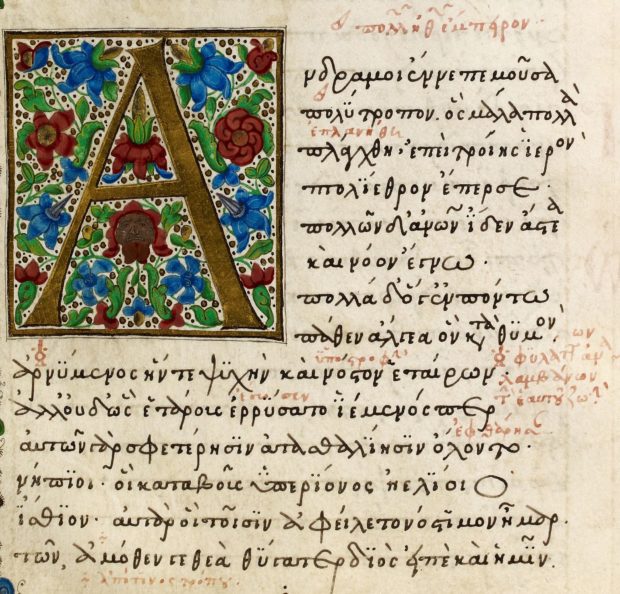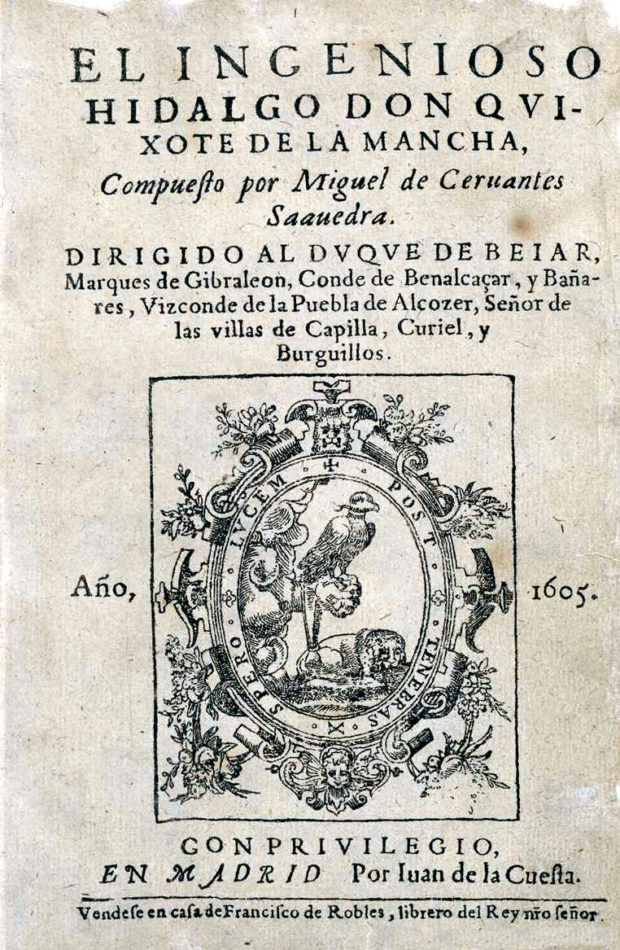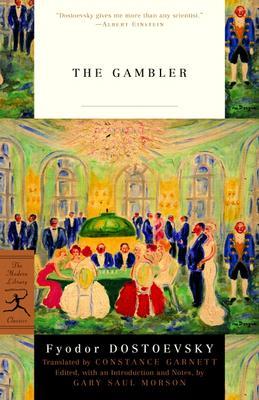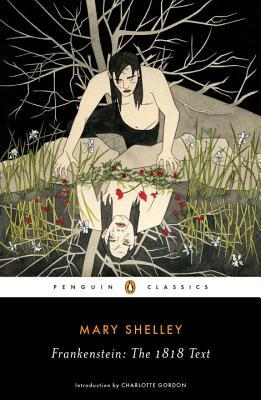You have no items in your cart. Want to get some nice things?
Go shoppingOne of the most wonderful things you realize the longer you stay attached to literature is how connected it all is. That’s not to say that connections can be forged between any two books, nor is it to point out somewhat forced links such as that between Twilight and Shakespeare’s Romeo And Juliet. Rather, it’s to note how the more you read, the more you can come to recognize that some outstanding stories are pleasant derivative of others, and that some recurring tropes can be traced back to spectacular, foundational works.
In keeping with these ideas, I did a bit of thinking and came up with a few particular interesting foundation novels (as I’m calling them) that set the stage for books, and in some cases even films, for years to come.

1. The Odyssey by Homer
In a way it seems too easy to begin a list like this with The Odyssey. Dating back to the 8th century and covering semi-mythical history as ancient as the fall of Troy and its aftermath, it could hardly have survived until now without becoming a foundational piece of literature for other projects. Furthermore, when you consider the specific subject matter of The Odyssey – a long journey home for a hero, a family left behind, and strange characters and obstacles along the way – you could think as broadly as to consider it a setup for any and all hero’s journeys and adventure tales to follow.
Even when you look at things more specifically though, there are a number of works directly inspired by The Odyssey. They include iconic books like William Faulkner’s As I Lay Dying and J.R.R. Tolkien’s The Hobbit, whimsical fantasies like Daniel Wallace’s Big Fish (better known to many through its film adaptation), and perhaps most notably, James Joyce’s acclaimed Ulysses. In fact, even the next book on my list is said by some to be derivative of Homer’s epic poem….

2. Don Quixote by Miguel de Cervantes
Despite having been written in the early-17th century, Don Quixote remains one of the most famous works of western literature today. Equal parts commentary on chivalry, original buddy comedy, portrait of a fool, and literary crafting masterpiece, it has a lot to offer the modern reader. It makes perfect sense, then, that Don Quixote has also proven hugely influential among other writers over the years, and has inspired some truly legendary works.
The most notable books that are often referenced in connection to this novel are perhaps Mark Twain’s Adventures Of Huckleberry Finn, Gustave Flaubert’s Madame Bovary, John Kennedy Toole’s A Confederacy Of Dunces, and The Idiot by Fyodor Dostoevsky – the next author on this list!

3. The Gambler by Fyodor Dostoevsky
Gambling is actually an interesting theme to look back on in literature and film alike, simply because it’s changed so much over the years. Once upon a time “gambling” meant holding a betting slip at a horse track or playing pool alongside a young Paul Newman in a smoky room; then it became a night out in a tailored suit in Vegas; next, it was for shady back rooms (think of the film Rounders), and then for glitzy modern casinos (21). And now, it seems writers and film producers alike can’t figure out what more to do with it all. Trusted and verified gaming sites from Ireland and the UK have grown so sophisticated as to dominate the modern world of gambling, but may have sapped it of valuable story potential at the same time.
We may, therefore, be at the end of this century-ish-long running theme. But looking back, it’s fair to say gambling narratives as we know them may have begun with Dostoevsky’s own The Gambler. As with all of the great Russian’s work it’s more about class and society than anything else, but this novel was also an archetypal look at the struggles of a chronic gambler – something we’ve seen played out through each of the different casino settings just listed.

4. Frankenstein by Mary Shelley
It’s no secret that Mary Shelley’s Frankenstein has held enormous influence over more than a century of popular fiction. It’s led to various reimagined narratives and unofficial sequels, several film adaptations, and is even believed to be responsible for some more direct contemporary works – such as The Strange Case Of Dr. Jekyll And Mr. Hyde by Robert Louis Stevenson. But I have a bigger theory here, which is that Frankenstein is also responsible for much of what we’ve seen in comic books and modern superhero films.
The story has been depicted in comic form several times over, but even beyond these interpretations, the main idea of the novel is at the core of so many superhero tales: Captain America’s super serum, Tony Stark’s ability to transform himself into a hero through brainpower, the Incredible Hulk’s uncontrollable morphing into an actual big green monster…. There’s an argument to be made that without Mary Shelly’s creativity we wouldn’t have all of these popular modern characters.





